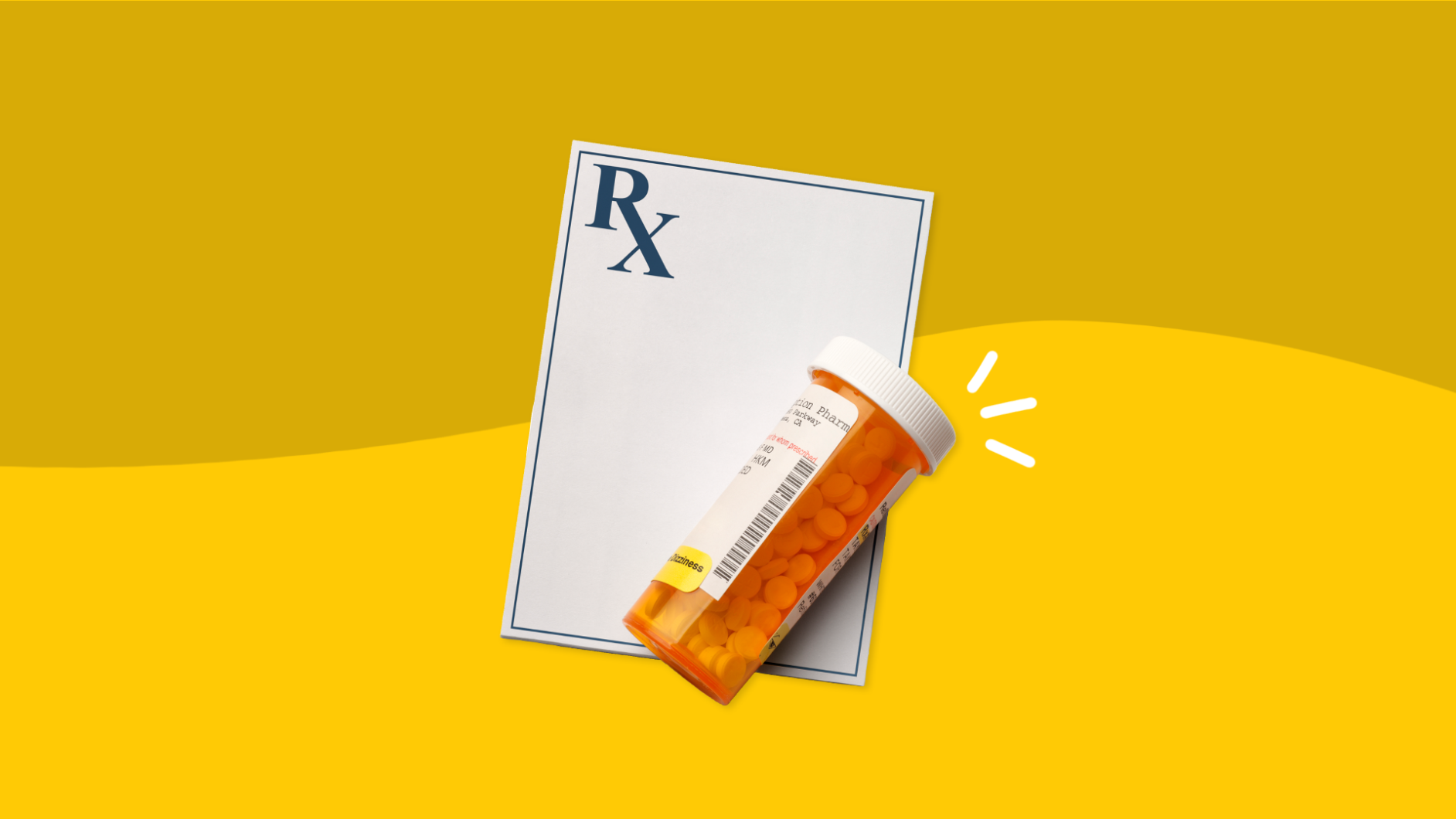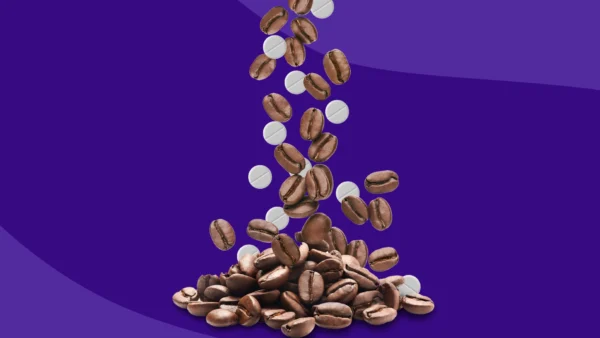Glipizide side effects | Diarrhea | Serious side effects |
Colchicine toxicity | Kidney injury | How long do side effects last? | Warnings | Interactions | How to avoid side effects
If you are one of the 9.2 million Americans that have suffered from a gout attack this year, your healthcare provider may have prescribed an antigout medication named colchicine to help ease your symptoms. This medication has been around since the ninth century and remains a popular option for patients and healthcare professionals.
Colchicine is a U.S. Food and Drug Administration (FDA) approved drug that is safe for use in both adults and children. It is a plant-based alkaloid from the autumn crocus and glory lily. Although most commonly used for gout management and prevention, the medication can also be used for the treatment of the genetic condition Familial Mediterranean Fever (FMF) and helps to manage the symptoms of Behcet’s syndrome, pseudogout, and pericarditis.
Currently, colchicine can only be acquired by a prescription from a healthcare provider. There are many forms of colchicine available. It can be prescribed in either a capsule (Mitigare), tablet (Colcrys), or liquid form. It is important to note that colchicine cannot cure any of the medical conditions that it treats and is only used to manage symptoms. This medication also is not recommended for long-term use for pain management.
Common side effects of colchicine
There are quite a number of side effects associated with the use of colchicine. Luckily most are related to symptoms of gastrointestinal distress, but all are usually short-lived. The most common symptoms to be aware of when using colchicine include:
- Diarrhea
- Nausea
- Vomiting
- Cramping
- Abdominal pain
- Fatigue
- Headache
- Sore throat
Diarrhea
As previously discussed, gastrointestinal symptoms are quite common with the use of colchicine. Diarrhea tends to be the most prevalent complication seen with its use. Although colchicine has been available for centuries, there are not many studies available that evaluate its use. A systematic review was performed in 2017 that found diarrhea could be seen in as many as 3 out of 4 patients prescribed with the original recommended dosage for colchicine. This dosage has since been studied and adjusted. Because of the potential gastrointestinal concerns associated with colchicine, the lowest effective dose is always recommended.
Serious side effects of colchicine
Although colchicine is considered a safe drug, one must note that there are some serious adverse effects associated with its use. If any of the following symptoms below occur while using colchicine, your medical provider should be contacted immediately for further medical attention.
- Myelosuppression (decreased bone marrow activity)
- Leukopenia (reduced white blood cells)
- Thrombocytopenia (reduced platelets)
- Granulocytopenia (reduced granulocytes)
- Pancytopenia (reduced red blood cells)
- Aplastic anemia
- Severe diarrhea
- Myopathy (disease of muscle tissue)
- Rhabdomyolysis (serious condition of muscle fibers entering the bloodstream)
- Neuropathy (nerve damage)
- Hepatotoxicity (liver damage)
- Nephrotoxicity (kidney damage)
- Multiple organ failure
- Disseminated intravascular coagulation (abnormal blood clotting in the body)
- Hypersensitivity reaction
- Reversible azoospermia (absence of viable sperm in semen)
Colchicine toxicity
Since there is minimal room for error when dosing colchicine safely, one must be aware of certain symptoms that may represent signs of toxicity. Gastrointestinal symptoms, the most common side effects with the use of colchicine, are usually the first symptoms of toxicity. When these symptoms (usually diarrhea and vomiting) occur, the medication is frequently stopped. This is because it may be hard to judge if the medication is continued that there will be more serious adverse effects that occur. Less common symptoms usually involve multiorgan failure and lastly death.
Colchicine toxicity is commonly divided into three stages. Stage one involves the common and initial symptoms of diarrhea, nausea, and vomiting. These symptoms may cause severe dehydration resulting in low blood pressure and an irregular amount of blood cells in the body. This stage typically lasts anywhere from 1-12 hours. Stage two usually lingers for 1-7 days and involves more catastrophic complications such as bone marrow suppression, multi-organ failure, kidney failure, altered mental status, and heart attack. Finally, stage three includes hair loss and rebound elevated blood count that will last 1-2 weeks for those individuals that survive stage two.
Because the stages of colchicine toxicity may overlap, close monitoring is vital if any symptoms begin to occur—even minor ones. Early intervention may be required to prevent fatalities associated with its use.
Kidney injury
Although not common, there are some studies showing direct toxicity of the kidneys due to the use of colchicine. They report kidney damage as well as the potential for kidney failure from the direct toxic effect of colchicine on the kidney tubules. Most studies show acute kidney damage from colchicine use is reversible. Typically kidney damage related to colchicine is a direct result of chronic use of the medication at high doses. Because kidney damage is always a concern with any medication, colchicine management should be monitored closely by a medical professional.
How long do side effects last?
The majority of side effects from colchicine are considered minor and short-lived. These usually include gastrointestinal side effects like abdominal pain, nausea, vomiting, and diarrhea that can start as early as two hours after initiating treatment. The symptoms may linger for a few days or up to a couple of weeks. Some of the more serious side effects like multiorgan failure may start around 8-72 hours after consumption. Symptoms may not fully go away for 7-10 days. Long-term side effects like numbness are less common with colchicine utilization. The quicker onset of symptoms appears to be found more with the use of intravenous colchicine versus the oral formulation.
Colchicine contraindications & warnings
Abuse and dependence
Colchicine is not a habit-forming drug and does not pose any risk of dependency with the use of this medication. Additionally, there are no withdrawal symptoms documented with the discontinuation of the medicine.
Overdose
It is recommended that no more than 0.5 mg/kg of colchicine be prescribed to prevent a fatal overdose of the medication. Understanding how to properly use this medication is important as there is no antidote to reverse the effects of the medication. This may be fatal. Currently, activated charcoal and saline flushing is the traditional treatment for an overdose and should be started as quickly as possible.
Colchicine restrictions
Do not use colchicine if you have:
- Known allergic reaction to the medication
- Known liver disease especially when preventative management is needed
- Known kidney disease especially when preventative management is needed
Colchicine should be avoided, if another option is available, in seniors and individuals with blocked bile ducts.
Pregnancy and breastfeeding
Colchicine has been shown to be safe for use during pregnancy with no adverse effects noted to the fetus or mother. However, it is advised that colchicine be avoided while breastfeeding. Currently, there is no human data to support damage to breast milk production or harm to the infant, so caution has been recommended at this time. When deciding to take colchicine under these circumstances, the potential benefits should always outweigh the risks.
Children
Colchicine has been approved for use in pediatric patients as young as four years old. This is only for the treatment of the genetic condition Familial Mediterranean Fever (FMF). Gout prophylaxis can be used only for those over the age of 16.
Seniors
Close monitoring is needed when prescribing colchicine to seniors. Kidney function may not work as well which causes colchicine to not be processed in the body adequately. This increases the risk for side effects with this medication. To counteract this possibility, a lower dose of colchicine may be considered or a different medication altogether.
Colchicine interactions
There is a wide range of medications that should be monitored closely or avoided when there is a consideration for prescribing colchicine.
Contraindications
Colchicine is absolutely contraindicated with certain HIV/antivirals, macrolide antibiotics, cancer medications, antifungals, and heart prescription drugs. They have the potential to increase the amount of colchicine levels in the body which results in colchicine toxicity and other serious adverse effects. This is especially true if there is liver or kidney disease present. Some of these medications include:
- Atazanavir
- Clarithromycin
- Cyclosporine
- Itraconazole
- Ketoconazole
- Lopinavir/Ritonavir
- Ribociclib
- Ritonavir
- Saquinavir
- Voriconazole
- Voxilaprevir
Other drug interactions
- Statins. This includes popular cholesterol medications such as atorvastatin, fluvastatin, lovastatin, pravastatin, and simvastatin.
- Antibiotics. Antibiotics such as ciprofloxacin and erythromycin should be avoided as they pose a risk of muscle pain and damage when combined with colchicine.
- NSAIDs. Certain anti-inflammatories should also be closely monitored. Examples include indomethacin and naproxen.
Other interactions
If supplements such as vitamin B12, turmeric, milk thistle, or ginkgo are being used, they should always be disclosed to your healthcare provider due to potential interactions when added with colchicine. Additionally, any products containing grapefruit should be avoided as they may cause unwanted side effects with colchicine use.
How to avoid colchicine side effects
1. Provide your healthcare provider with a current list of all medications
Information should be provided that includes all prescription and over-the-counter medications, vitamins, and herbal supplements.
2. Supply your healthcare provider with a complete medical history
Because colchicine toxicity poses a higher risk for those with certain medical conditions, a complete history should be provided so that it can be determined if you are a good candidate to take this medication. Disclosure of liver disease, kidney disease, pregnancy, or if you are breastfeeding is important.
3. Medication should only be given to those who are 4 years old and older.
Colchicine has only been FDA approved for those who are 4 years old or older. Infants and toddlers should not be given colchicine.
4. Always take your medication on time
Keep a record of when you should take your medication. If there is a missed dose, take it as soon as you remember. If the missed dose is close to your next scheduled dose, take that one instead.
5. Take medication as directed by your healthcare professional
Do not take more or less of this medication without the guidance of your physician. Even small increases of colchicine can be life-threatening and may not improve symptoms. Taking colchicine will vary based on your age, the medical condition being treated, medical history, and how you react to the medication. If your symptoms are not improving, do not take more medication or take them for longer than recommended.
- Acute gout: When taking colchicine for an acute gout flare, usually larger doses are prescribed initially. The medication should be discontinued as soon as the pain has cleared up. If any acute symptoms of diarrhea, vomiting, nausea, or stomach pain occur, the medication should be discontinued immediately.
- Gout prevention: When taking colchicine for an extended time for gout prevention, smaller dosages will be given but for longer periods of time. This medication may be given in addition with other gout medications like allopurinol. Depending on other medical conditions that may need to be treated, colchicine may be prescribed for the rest of someone’s life. Close monitoring may be required in this scenario along with laboratory testing.
6. Monitor symptoms closely
Overdose of colchicine can be fatal. Contact your physician immediately if you notice any of the following:
- Diarrhea
- Vomiting
- Stomach pain
- Muscle weakness
- Little or no urinating
- Numbness or tingling
- Weak pulse
- Slow heart rate
- Weak or shallow breathing
- Fainting
7. Avoid grapefruit juice
Grapefruit products of any kind should be avoided while taking colchicine as they may lead to some of the side effects discussed above by increasing the levels of colchicine in the body.
Related Resources for colchicine side effects
- Colchicine, Epocrates
- Colchicine Overdose-Induced Acute Renal Failure and Electrolyte Imbalance, Renal Failure
- Diarrhea in Adults, Merck Manual
- Diagnosis and Treatment of Colchicine Poisoning, California Poison Control System
- Gout and hyperuricaemia in the USA: prevalence and trends, Rheumatology
- Hepatotoxicity and nephrotoxicity of colchicine prolonged use in the rats, International Journal of Advanced Research
- Lessons from the Courtroom: Colchicine Toxicity, Emergency Medicine News
- Management of Gout: A Systematic Review in Support of an American College of Physicians Clinical Practice Guideline, Annals of Internal Medicine
- The Ugly Side of Colchicine, Journal of Investigative Medicine High Impact Case Reports











